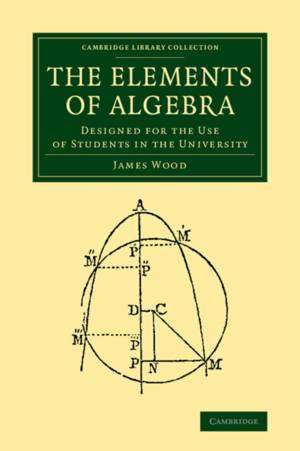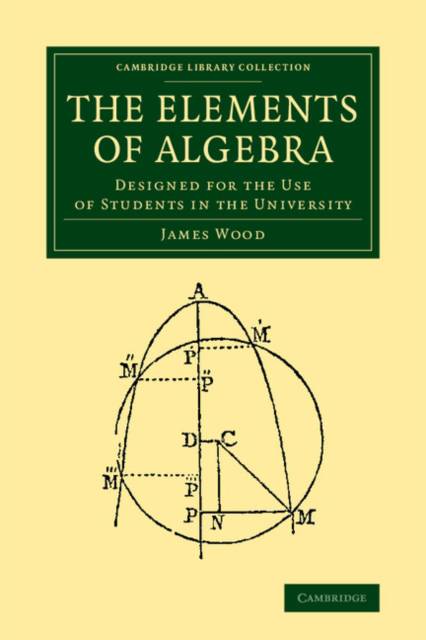
- Afhalen na 1 uur in een winkel met voorraad
- Gratis thuislevering in België vanaf € 30
- Ruim aanbod met 7 miljoen producten
- Afhalen na 1 uur in een winkel met voorraad
- Gratis thuislevering in België vanaf € 30
- Ruim aanbod met 7 miljoen producten
Zoeken
€ 78,95
+ 157 punten
Uitvoering
Omschrijving
In his autobiography, Charles Darwin wrote of his time at Cambridge: 'I attempted mathematics ... but I got on very slowly. The work was repugnant to me, chiefly from my not being able to see any meaning in the early steps in algebra. This impatience was very foolish, and in after years I have deeply regretted that I did not proceed far enough at least to understand something of the great leading principles of mathematics, for men thus endowed seem to have an extra sense.' First published in 1795 and reissued here in its 1815 sixth edition, The Elements of Algebra by James Wood (1760-1839) was one of the standard Cambridge texts for decades, so its presence in Darwin's library aboard the Beagle is readily understandable. Then, as now, Cambridge had a high opinion of itself as a mathematical university. The contents of Wood's book give an interesting glimpse of the standards expected of the less able students.
Specificaties
Betrokkenen
- Auteur(s):
- Uitgeverij:
Inhoud
- Aantal bladzijden:
- 318
- Taal:
- Engels
- Reeks:
Eigenschappen
- Productcode (EAN):
- 9781108066532
- Verschijningsdatum:
- 2/01/2014
- Uitvoering:
- Paperback
- Formaat:
- Trade paperback (VS)
- Afmetingen:
- 152 mm x 229 mm
- Gewicht:
- 467 g

Alleen bij Standaard Boekhandel
+ 157 punten op je klantenkaart van Standaard Boekhandel
Beoordelingen
We publiceren alleen reviews die voldoen aan de voorwaarden voor reviews. Bekijk onze voorwaarden voor reviews.











